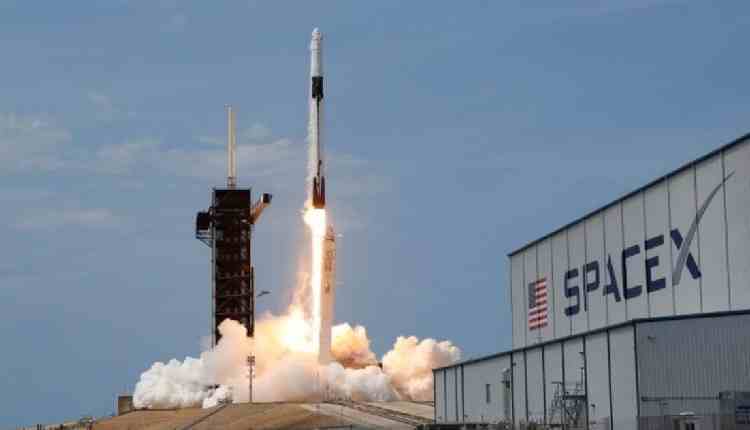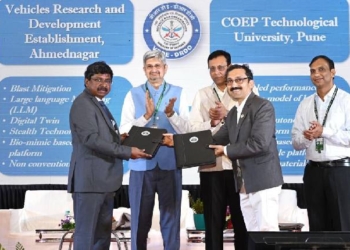Chennai: Indian space sector startup Azista BST Aerospace Pvt Ltd’s first remote sensing satellite ABA First Runner (AFR) was successfully orbited by SpaceX’s Falcon 9 rocket.
According to SpaceX, the rocket on a dedicated rideshare mission carried 72 spacecraft that includes CubeSats, MicroSats and others and one of them was the Ahmedabad-based Azista BST Aerospace’s 80 kg satellite AFR.
Azista BST Aerospace is an Indo-German satellite manufacturing joint venture floated by India’s Azista Industries Pvt. Ltd (holding 70 per cent stake) and Berlin Space Technologies GmbH (holding 30 per cent stake).
“Currently the company is funded by Azista Industries. We are not for venture capital funding. We have a long term outlook in business,” Sunil Indurti, Director had told IANS.
The AFR will provide a panchromatic image with five metre resolution with a Swath of 70km.
According to Bharath Simha Reddy P., Business Development Manager, the company has potential customers — in strategic and agriculture sectors — for the data to be acquired from the first satellite and as well as analytics. Most of the customers are located in SouthEast Asia and other parts, including India.
“In the next two/three years, there will be three/four missions to demonstrate our satellite payloads,” Bharath Simha Reddy had told IANS recently.
An engineering graduate from the famed College of Engineering, Guindy in Chennai Indurti got into the space sector after founding and exiting an ice cream parlour chain in Hyderabad.
“My ambition during the college days was to build a national brand,” Indurti said.
Soon after exiting the ice cream venture, Indurti met Srinivas Reddy Male, Managing Director and a Director with pharma company Hetero and both decided to get into satellite manufacturing.
“We initially started as a vendor for Indian Space Research Organisation (ISRO) and set up a factory in Ahmedabad in Gujarat. We have also set up weather stations for DRDO and others,” Indurti said.
According to Bharath Simha Reddy, the company’s target is to make about 100 satellites per year that would weigh between 50-200 kg.
(IANS)















